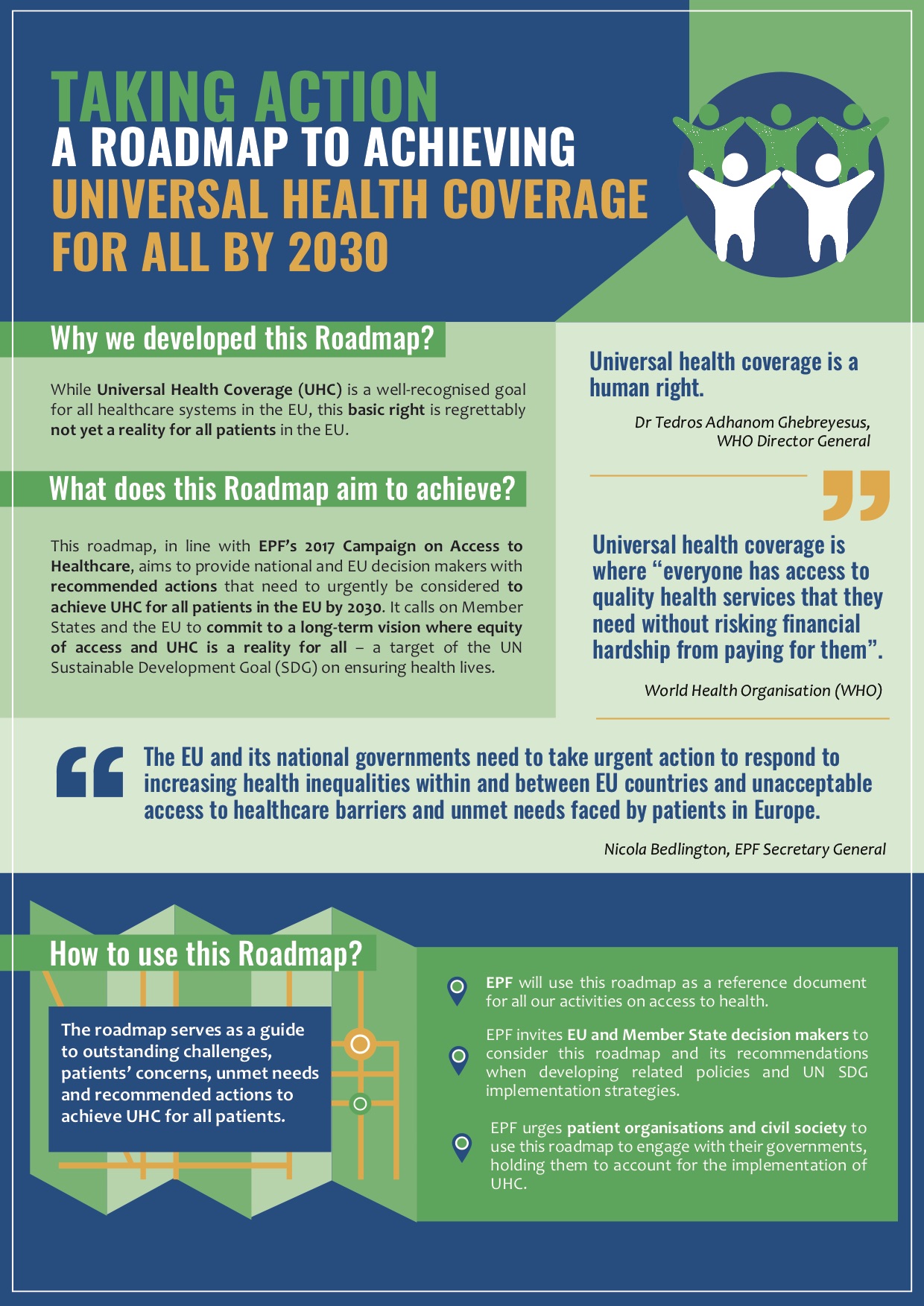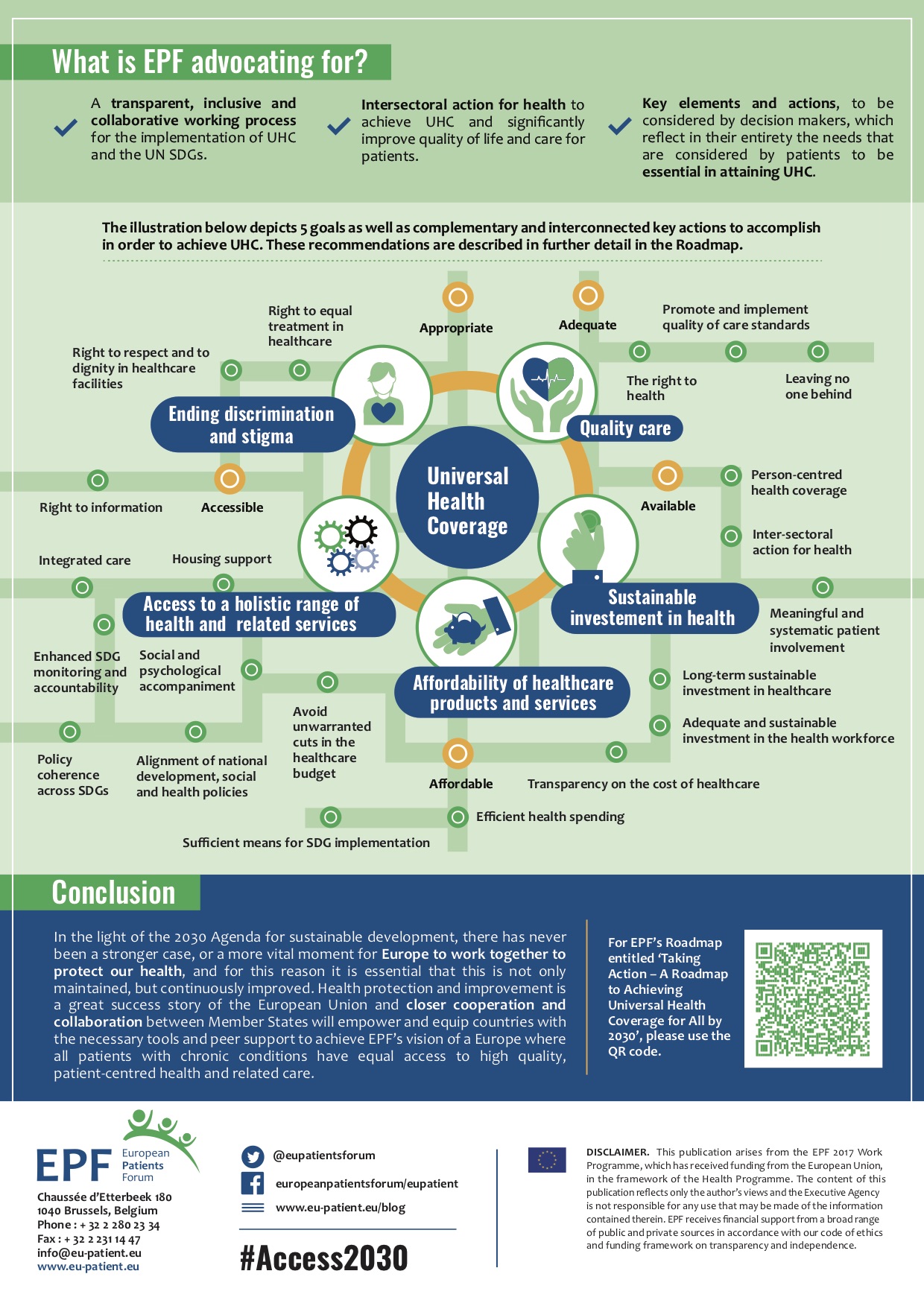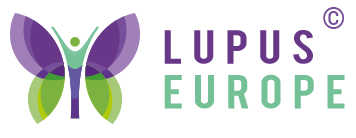On December 6th Katharine Wheeler participated in the closing conference for EPF’s campaign on Access to Healthcare for All. At the conference EPF presented their Roadmap for Universal Health Coverage for all. Katharine was invited to speak as a patient organisation representative and stressed the importance of leaving no-one behind if we want to achieve the UN sustainable development goals by 2030. She also stressed how important it is that all stakeholders, including patients, are involved across the board and that involvement is not limited to token gestures when it comes to designing new policies and looking at ways to reduce waste while improving the standard of care. This is all the more true when it comes to complex, chronic and rare diseases where care can be fragmented at best in any country, or almost non-existent in others.
Below you will find EPF’s press release, issued on 6th December.
TAKING ACTION: EPF’S ROADMAP TO ACHIEVE
UNIVERSAL HEALTH COVERAGE FOR ALL BY 2030
BRUSSELS, 6 December 2017 – EPF’s Campaign on Access to Healthcare for All calling for Universal Health Coverage by 2030 is coming to an end. During its closing Conference held today at the European Parliament, EPF presented its Roadmap and called for political change to ensure the rights of all patients are respected, to fight the health inequalities that persist across the EU, and to make health a priority in all policies at national and EU levels.
A tool for political guidance and a call for a long-term vision
Patients and citizens still face many unmet needs and unequal access to healthcare in all EU Member States. The output of EPF’s one-year campaign, EPF’s Roadmap to achieving universal health coverage for all by 2030 aims to tackle these in two main ways: “With this Roadmap we want to provide political guidance and recommendations to policy makers and politicians and to encourage them to have a longer-term vision and to reflect on what kind of society we want for the patient community and the wider public by 2030.” said Nicola Bedlington, EPF Secretary General.
What is EPF advocating for?
This Roadmap is intended mainly for EU and Member State decision and policy-makers and urges them to:
- Provide equitable access to high-quality care to all patients, regardless of which country the live in or their country of origin;
- Commit to invest sustainably in healthcare based on outcomes and added value;
- Ensure the delivery of healthcare products and services that are affordable for all;
- Promote better coordination of care and implement access to a holistic range of health and related services, ensuring that the package of services covered by the healthcare system is tailored to the needs of patients;
- End the discrimination and stigma that patients face and make sure that no population is excluded.
UN SDGs as a compass, European health collaboration as a means
The Roadmap emphasises the importance and need to establish a transparent, inclusive and collaborative working process for the implementation of UHC and the UN SDGs.
“I we don’t get it right on the SDG on Health, then there is a risk that the other SDGs will fail. By the same token, if we don’t get it right in health collaboration post 2020, then some other big aspirations for the EU in terms of economics and growth will also fail,” added Nicola Bedlington.
This Roadmap echoes numerous initiatives taken by EPF to increase access for patients and citizens across Europe. On Monday 4th December, the EPF roundtable on cross-border healthcare provided an updated assessment of the current state of implementation of the directive from the perspective of patients, pointing out the gaps in access but also in the quality and safety of the care received across Europe.
Please find here EPF’s Roadmap entitled ‘Taking Action – A Roadmap to Achieving Universal Health Coverage for All by 2030’.
A factsheet giving a snapshot of this Roadmap has also been developed.





